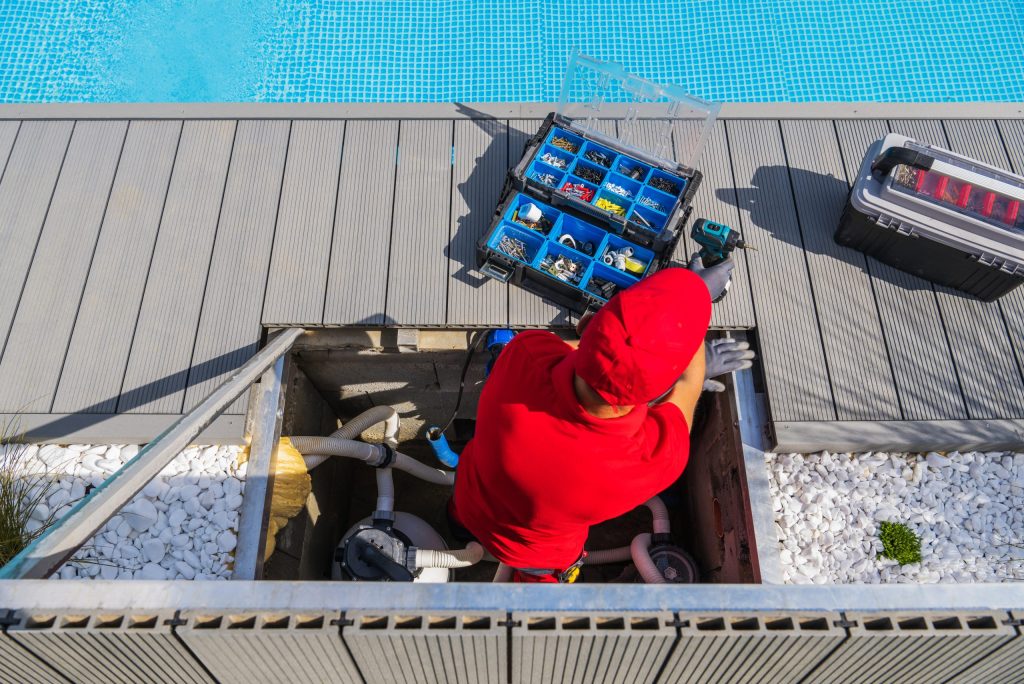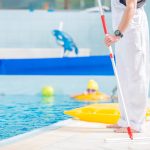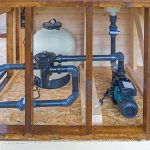How to Extend the Lifespan of Your Swimming Pool Equipment
Owning a swimming pool comes with the responsibility of maintaining its equipment. Pumps, filters, heaters, and other components work hard to keep the water clean and safe, but without proper care, they can wear out faster than expected. Regular maintenance extends the lifespan of your pool equipment and helps you avoid costly repairs and replacements.
The Importance of Proper Pool Equipment Maintenance
Investing in a swimming pool is a long-term commitment, and keeping its equipment in top shape ensures a better return on investment. Without routine upkeep, components can degrade due to factors such as:
- Clogged filters and skimmers – Debris buildup forces the system to work harder, leading to premature failure.
- Unbalanced water chemistry – High or low pH, improper chlorine levels, and excessive alkalinity can corrode parts.
- Lack of seasonal maintenance – Extreme weather changes can stress equipment and cause wear.
- Ignoring minor repairs – Small issues, like a slow pump leak, can escalate into costly replacements.
By following best practices for pool equipment care, owners can significantly prolong their system’s lifespan.
Best Practices for Prolonging the Life of Pool Equipment
Regular Cleaning and Debris Removal
Pool equipment functions best when it is free of dirt, leaves, and other debris. Follow these steps to keep essential components clean:
- Skimmers and pump baskets – Empty these weekly to prevent clogs.
- Pool filters – Backwash sand and DE filters as needed; clean cartridge filters every few weeks.
- Pump impeller – Check for blockages that can restrict water flow.
Routine cleaning helps maintain proper circulation and reduces strain on pool equipment.
Maintaining Proper Water Chemistry
Balanced pool chemistry prevents damage to pumps, heaters, and filters. Aim for these ideal ranges:
- pH level: 7.2 – 7.6
- Chlorine: 1.0 – 3.0 ppm
- Total alkalinity: 80 – 120 ppm
- Calcium hardness: 200 – 400 ppm
Improper levels can lead to scale buildup, corrosion, or cloudy water, all of which can wear down pool equipment over time.
Timely Inspections and Repairs
Regularly inspecting pool equipment can prevent unexpected breakdowns. Look for these warning signs:
- Reduced water flow – A sign of clogged filters or pump issues.
- Unusual noises – Grinding or humming sounds may indicate motor problems.
- Leaks or rust – Small leaks around seals or rust on metal parts need prompt attention.
Addressing these issues early can help prevent expensive repairs and extend the life of pool components.

Using High-Quality Pool Covers
A durable pool cover protects water quality and reduces strain on equipment by:
- Preventing debris accumulation
- Reducing evaporation, minimizing the need for refills
- Helping maintain water temperature, reducing heater usage
By covering the pool when not in use, owners can ease the burden on their filtration and heating systems.
Upgrading to Energy-Efficient Equipment
Modern pool equipment is designed to last longer while using less energy. Consider investing in:
- Variable-speed pumps – These use up to 80% less energy than traditional pumps and experience less wear.
- Energy-efficient heaters – Gas and electric models with higher efficiency ratings save money and extend lifespan.
- Advanced filtration systems – Modern cartridge and DE filters require less maintenance and improve water clarity.
Upgrading to newer technology not only enhances efficiency but also prolongs the lifespan of pool systems.
Seasonal Pool Maintenance Tips
Winterizing Your Pool Equipment
If a pool is in a colder climate, proper winterization prevents freeze damage:
- Drain and store equipment like ladders and skimmer baskets.
- Lower water levels and use a winter cover.
- Blow out water lines to prevent freezing in pipes and pumps.
Summer Maintenance for High Usage
During peak swimming season, equipment works harder to keep the pool clean. Increase maintenance by:
- Running the pump for longer periods to handle increased debris.
- Testing and adjusting chemical levels more frequently.
- Inspecting and backwashing filters as needed.
Adapting maintenance routines to seasonal demands ensures optimal performance year-round.
Professional Pool Inspections and Maintenance Services
While regular upkeep extends the lifespan of pool equipment, professional inspections provide an extra layer of protection. Certified pool operators can:
- Identify hidden issues before they lead to costly repairs.
- Ensure compliance with local health and safety regulations.
- Recommend upgrades to improve efficiency and longevity.
Hiring experts for periodic maintenance helps pool owners avoid unexpected breakdowns and maintain a safe swimming environment.
Keep Your Pool Equipment in Top Shape with Professional Help
Proper care and maintenance can significantly extend the life of swimming pool equipment, saving both time and money. Whether it’s routine cleaning, chemical balancing, or professional inspections, staying proactive is key. For expert guidance on maintaining pool equipment, schedule a consultation with Pool Operation Management today.






